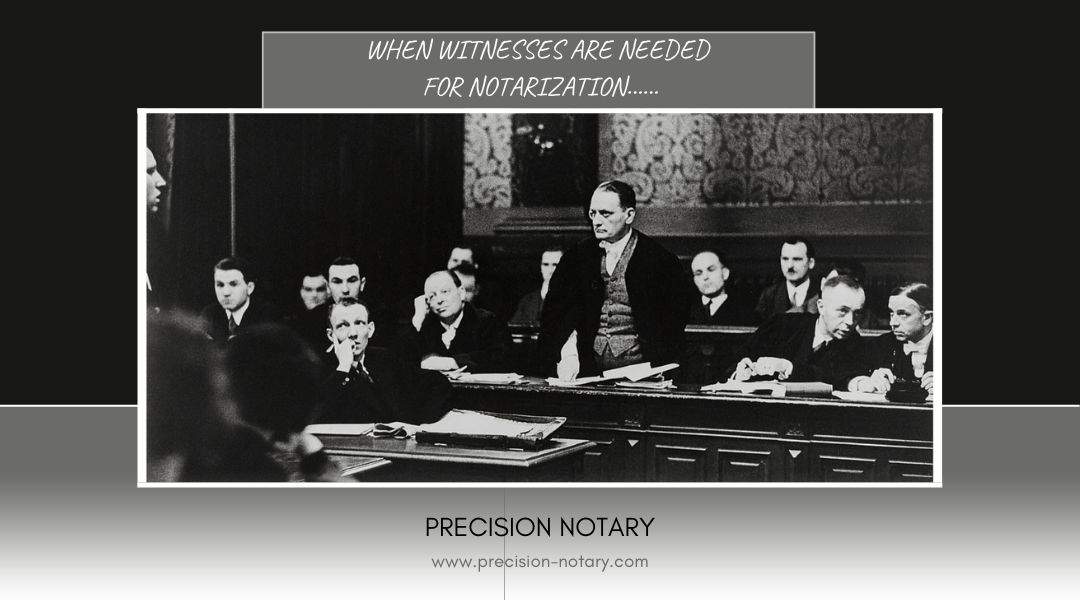One of my most important roles as a notary is to notarize legal documents, such as wills, powers of attorney, and trusts. In some cases, witnesses may also be required for notarization. In this blog post, I’ll explain the process and requirements when witnesses are needed for notarization.
When are witnesses needed for notarization?
In general, witnesses are required for notarization when the document being notarized requires them, i.e. you will see a signature block for witnesses following the signer’s signature. This may include legal documents such as wills, trusts, and powers of attorney, or any other document that requires a witness signature. The exact requirements for witnesses may vary depending on your state’s laws and the type of document being notarized.
Requirements for witnesses
If witnesses are required for notarization, there are certain requirements that must be met. First, the witness must be physically present during the notarization process. This means they cannot sign the document beforehand and have the notary acknowledge their signature later.
Second, the witness must be a disinterested party. This means they cannot have a financial or personal interest in the document being notarized. For example, if a will is being notarized, the witness cannot be a beneficiary of the will.
Third, the witness must be able to identify the signer of the document. This means they must be able to confirm the signer’s identity and sign their name as a witness.
Process for notarization with witnesses
If witnesses are required for notarization, the process typically involves the following steps:
- The signer and witnesses must appear in person before the notary.
- The notary will verify the identity of the signer and witnesses and ensure they are disinterested parties.
- The signer will sign the document in the presence of the notary and witnesses.
- The witnesses will then sign the document in the presence of the notary and the signer.
- The notary will then complete the notarization process, which typically involves signing and stamping the document.

It’s important to note that the requirements and process for notarization with witnesses may vary depending on your state’s laws and the type of document being notarized.
Make sure to consult with your notary or legal professional if you have any questions or concerns.
In most cases, if your documents require witnesses, we will ask you to arrange for witnesses to be present. Often, neighbors or friends are happy to pop in to serve in that capacity.
If you have any questions or concerns about notarization with witnesses, please give us a call or reach out to a legal professional.

Linda Benningfield is a professional mobile notary, loan signing agent, and apostille facilitator living in the beautiful Pacific Northwest. Linda is also an independent associate for LegalShield / ID Shield providing affordable protection plans to individuals, families, and businesses.
Connect here: linda@precision-notary.com


Recent Comments